Search
Search Results
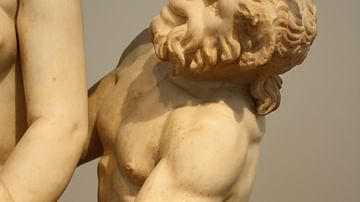
Definition
Pan
Pan is a figure from Greek mythology who was originally a pastoral god from Arcadia. It was believed Pan dwelt in the mountains and forests of Greece. He was the patron of shepherds, hence one of his attributes is the lagobolon - a hare trap...

Definition
Pan Flute
The pan flute or panpipes (syrinx) was a musical wind instrument first used by the ancient Greeks. Most commonly played by shepherds, the earliest use was in the Cycladic islands in the third millennium BCE, and representations of the instrument...
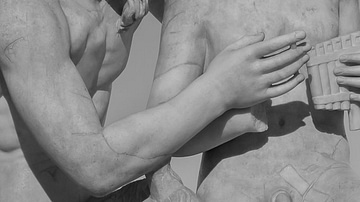
Image
Pan Teaching Daphnis
A Roman copy of an original by Heliodoros; Palazzo Altemps in Rome, Italy
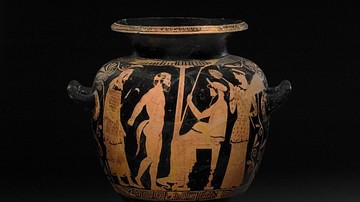
Definition
Midas
Midas was a mythical king of Phrygia in Asia Minor who was famous for his extraordinary ability to change anything he touched into gold. This gift was given to him by Dionysos in thanks for his hospitality to the wise satyr Silenus. Midas...
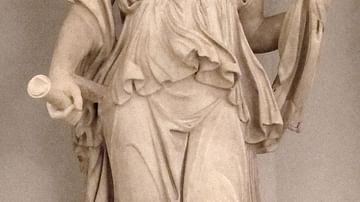
Definition
Selene
Selene (also known as Mene) is the personification and goddess of the moon in Greek mythology. Every night, she travels across the sky in her chariot, pulling the moon behind her. Selene is the daughter of the Titans Hyperion and Theia. She...
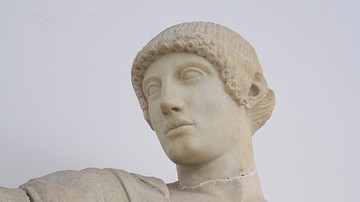
Definition
Apollo
Apollo was a Greek god associated with the bow, music, and divination. The epitome of youth and beauty, source of life and healing, patron of the arts, and as bright and powerful as the sun itself, Apollo was perhaps the most loved of all...
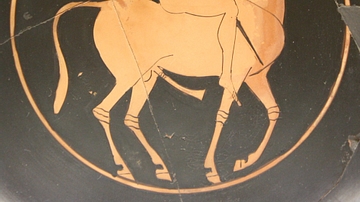
Definition
Satyr
Satyrs (aka silens) are figures from Greek mythology who were followers of the god of wine Dionysos. Satyrs were often guilty of excessive sexual desires and overindulgence of wine. Men with a horse's tail and ears or men with goat legs...
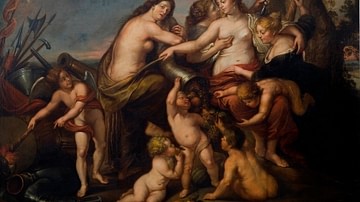
Definition
Horae
The Horae (Horai, sing. Hora) were the personification and goddesses of the seasons and the hours and, later on, were regarded as goddesses of order and justice in Greek mythology. They were the daughters of Zeus and the Titaness Themis and...
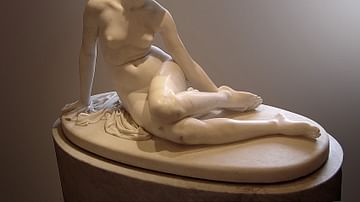
Definition
Nymph
A nymph (Greek: νύμφη, nymphē) in Greek and in Roman mythology is a young female deity typically identified with natural features such as mountains (oreads), trees and flowers (dryads and meliae), springs, rivers, and lakes (naiads) or the...
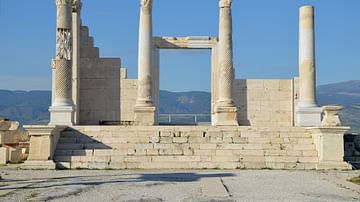
Definition
Phrygia
Phrygia was the name of an ancient Anatolian kingdom (12th-7th century BCE) and, following its demise, the term was then applied to the general geographical area it once covered in the western plateau of Asia Minor. With its capital at Gordium...